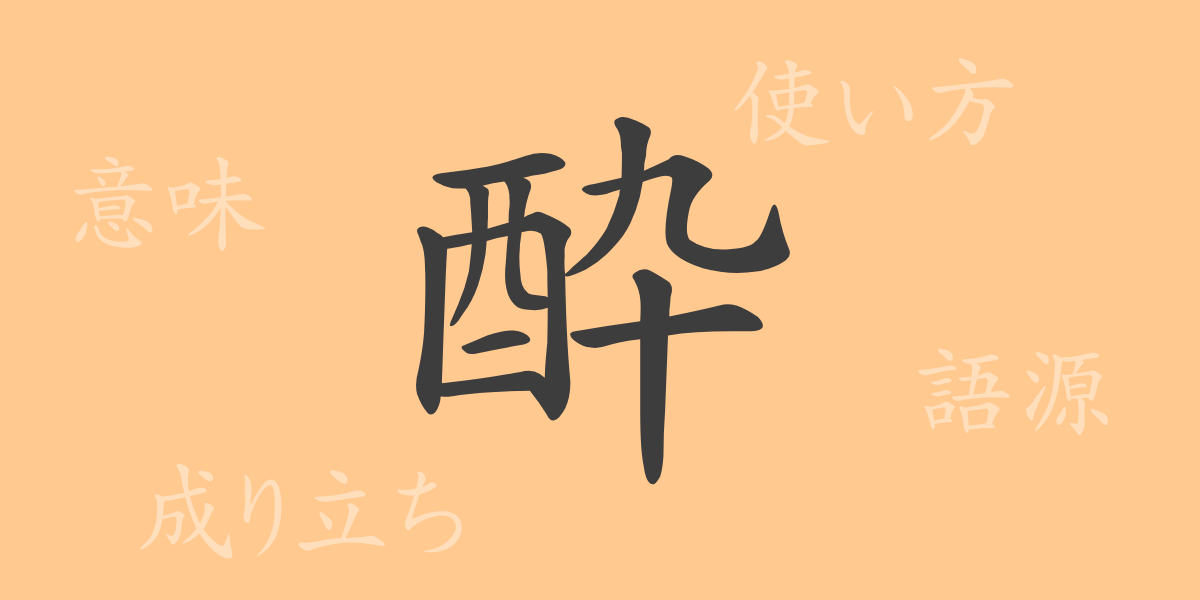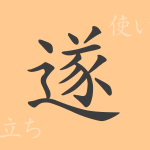The Japanese language is known for the profound meanings and history embedded in each kanji character. This article spotlights the commonly used kanji ‘酔’ (すい), exploring its allure and hidden stories. ‘酔’ is frequently used not only in contexts related to alcohol but also in various other expressions. We delve into its usage, idioms, and proverbs to uncover how deeply this character is rooted in our daily lives.
Origins of 酔
The kanji ‘酔’ combines the radical for alcohol, ‘酉’ (トリ), with ‘非’ (あらず), originally denoting negation. ‘酉’ symbolizes an alcohol vessel in ancient China, while ‘非’ typically conveys incorrectness or error. Together, they depict the state of being altered by alcohol—intoxicated or not in one’s normal state. This composition reflects the transition from a physical representation to embodying the abstract state of intoxication.
Meaning and Usage of 酔
‘酔’ primarily means to be drunk or intoxicated, often used to describe the state of being under the influence of alcohol. However, it also extends to more figurative uses such as ‘酔心地が良い’ (feeling pleasurably intoxicated) or ‘酔狂’ (a whimsical or eccentric behavior). The character can also depict being metaphorically ‘intoxicated’ by things like flowers or seasons, as seen in expressions like ‘花に酔う’ (to be enchanted by flowers) or ‘春に酔う’ (to be captivated by spring).
Readings, Stroke Count, and Radical of 酔
The kanji ‘酔’ has several readings and is an integral part of Japanese script:
- Readings: On’yomi ‘スイ’, Kun’yomi ‘よう’, ‘よい’
- Stroke Count: 11 strokes.
- Radical: 酉 (トリ).
Idioms and Phrases Using 酔
‘酔’ appears in numerous idioms and phrases, each carrying a unique meaning:
- 酔生夢死 (すいせいむし): Living a life aimlessly as if drunken or dreaming.
- 酔狂 (すいきょう): Engaging in eccentric behaviors; being whimsically unconventional.
- 酔払い (よっぱらい): A drunkard, someone who is often drunk.
- 花に酔う (はなによう): To be enthralled or enchanted by the beauty of flowers.
- 酔眼 (すいがん): A blurred or unfocused gaze as if intoxicated; a tipsy view of things.
Conclusion on 酔
The kanji ‘酔’ is versatile, representing not only the physical act of drinking but also a broader spectrum of enchantment and absorption. While it is frequently encountered in everyday Japanese life, its rich connotations add depth to the language’s expression. Through this exploration, we gain insight into the diverse applications of ‘酔’, appreciating its role in enhancing both written and spoken Japanese.

























